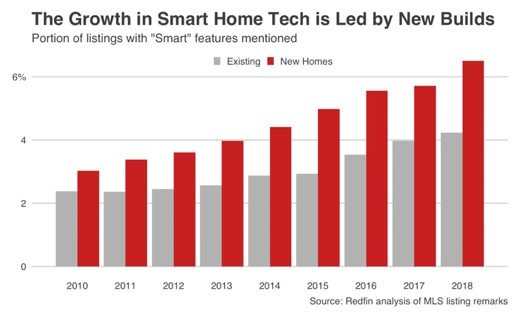There’s little question that one of the vital necessary and sometimes daunting steps within the homebuying course of is qualifying for a mortgage. By understanding what lenders search for – the 4 C’s of credit score – you possibly can set your self up for achievement and a smooth-sailing mortgage underwriting course of. So, in case you’re at present renting an condominium in San Francisco, taking a look at properties on the market in Austin, TX, or trying out one other metropolis the place your cash can go additional, see how the 4 C’s of credit score impacts the scale of mortgage you possibly can qualify for.

What are the 4 C’s of credit score?
- Credit score: Do you’ve gotten a observe file of constantly making funds on time?
- Capability: Can you pay again the mortgage?
- Capital: Do you’ve gotten property, money reserves, or different funds?
- Collateral: What property or possessions are you able to pledge as safety towards the mortgage?
Whereas totally different lenders could have their very own particular {qualifications} for securing a house mortgage, there are 4 foremost components that they’ll overview and analyze throughout the mortgage underwriting course of. These foremost components are credit score, capability, capital, and collateral.
Let’s dive deeper into every of the 4 C’s of credit score.
1) Credit score
When making use of for a mortgage, lenders will overview your credit score historical past and credit score rating to research your file of paying payments. They wish to perceive your total historical past as a borrower and see the way you handle your different money owed and month-to-month funds.
Your credit score rating is usually a make or break issue for a mortgage mortgage approval. Oftentimes, there shall be minimal credit score rating necessities for a mortgage, and your credit score rating could decide the scale of the mortgage quantity you’re certified for along with the rate of interest on the mortgage.
“When buying a house, lenders will pull a credit score report to find out your credit score rating and to see the debt you might be carrying,” says Kevin Tinsley of All Tech Mortgage. “What some folks won’t notice is the information on the credit score report could also be 1-2 months outdated. So in making ready to buy a house, get an early begin if you’re planning to pay down bank card balances or plan to repay any present loans. That approach when the lender pulls your report it’ll mirror these accounts being paid off or down, which is able to enhance your credit score rating.”
In case you don’t have a great credit score rating and also you’re planning to purchase a house within the close to future, it’s a good suggestion to get forward and deal with enhancing your credit score rating as quickly as doable. “One of many greatest damages many individuals do to their credit score scores is by carrying excessive balances on their bank card(s). Conserving the cardboard’s steadiness under 30% of the accessible credit score limits is all the time the objective,” says Joe Metzler, Senior Mortgage Officer at Cambria Mortgage. “In case you use your bank card for comfort and sometimes pay it off every month in full, don’t look ahead to the assertion to come back out, then pay. Somewhat, pay the cardboard down earlier than the assertion really comes out.”

2) Capability
Capability refers to a possible borrower’s skill to repay the mortgage. A lender will have a look at your revenue, financial savings, employment standing and historical past, and every other monetary obligations (corresponding to a automotive mortgage, pupil loans, and so forth.) to evaluate your debt-to-income ratio (DTI) and decide in case you qualify for the mortgage mortgage. Usually, a mortgage applicant with a decrease DTI is seen as decrease danger, so the decrease DTI, the higher.
On the subject of the 4 C’s of credit score, capability is arguably an important and complicated areas of mortgage qualification. “Many debtors get confused in relation to the differing types and sources of revenue a lender makes use of to find out their skill to repay,” says Vatche Saatdjian, President and CEO of Valley West Mortgage. “These embrace hourly, wage, bonuses, commissioned, and self-employed. All sources of revenue are calculated in a different way with regard to qualification and relying in your present scenario, could be way more or quite a bit lower than what you may assume they’re. Discussing your revenue scenario with a licensed mortgage skilled is the easiest way to make sure success in getting authorised for a house mortgage.”
Get pre-approved and safe your dream residence
Work with a lender to search out the precise mortgage for the house you like. Get pre-approved
To confirm your revenue, lenders will overview your previous W2s, revenue tax returns, and present revenue statements. You’ll be able to anticipate your revenue to be evaluated primarily based on:
- The kind and supply of revenue
- The period of time the revenue has been acquired
- The longer term expectancy and stability of the revenue
Then, lenders will overview your month-to-month recurring debt funds, corresponding to:
- Auto loans
- Scholar loans
- Private loans
- Bank card funds or line of credit score funds
- Baby or spousal assist funds
- Different money owed and obligations, corresponding to medical payments
Nevertheless, simply since you’ve been authorised for a certain quantity for a mortgage, it doesn’t essentially imply you possibly can afford to buy a house on the prime of your worth vary, provides Lisa Behm, space gross sales supervisor for First Federal Lakewood, a mutual financial institution in Cleveland.
That is significantly necessary today with surging inflation rising the price of nearly all the things, from a dozen eggs to that new furnishings set you’ve been eyeing. “Earlier than you signal on the dotted line, take into consideration your whole funds,” Behm says. “At all times go away room for elevated prices corresponding to actual property taxes, utility payments, and bank card and automotive funds.”
Behm says new homebuyers usually don’t think about sudden prices that may rapidly blow up their funds. As an illustration, extra space probably means larger heating and cooling prices or the house you bought could possibly be re-assessed by the native municipality, triggering a rise in actual property taxes. “The perfect method is to go together with a mortgage cost you’ll really feel snug with if all of your different funds had been to extend,” says Behm.

3) Capital
Along with your revenue, lenders look to see how a lot cash you’ve gotten in financial savings and in funding accounts that may be transformed to money, corresponding to shares, 401(okay) account(s), or Particular person Retirement Accounts (often called IRAs) – that are known as money reserves. Lenders wish to see that you’ve got funds past your gross month-to-month revenue on your mortgage cost in addition to on your down cost and shutting prices.
Past money reserves, listed below are just a few different sources of capital lenders could take into accounts:
- Down cost help applications
- Presents from a relative
- Grants
“When going by means of the mortgage underwriting course of, it’s necessary to remember the fact that liquidity is king. Having money reserves in available accounts and limiting the motion of that cash will assist to make sure essentially the most environment friendly expertise,” says Nate Condon from Walkner Condon Monetary Advisors.
“For instance, balances in financial institution or credit score union accounts could be simply verified and tracked utilizing primary month-to-month statements. Keep in mind that any motion of cash throughout the timeframe of the underwriting course of, together with a few months previous to it, will probably contain important monitoring. Extra strikes imply extra monitoring, which might imply a lengthier course of,” continues Condon.
4) Collateral
Collateral refers back to the borrower’s property that can be utilized as safety towards the mortgage. Whenever you’re making use of for a mortgage, the collateral is the house. If a borrower defaults on their mortgage mortgage, the mortgage firm or financial institution can take possession of the house.
Collateral is commonly measured by its worth and perceived ease of liquidation. When a homebuyer receives financing by means of a financial institution or mortgage lender, they are going to order a house appraisal to find out the worth of the house.

















